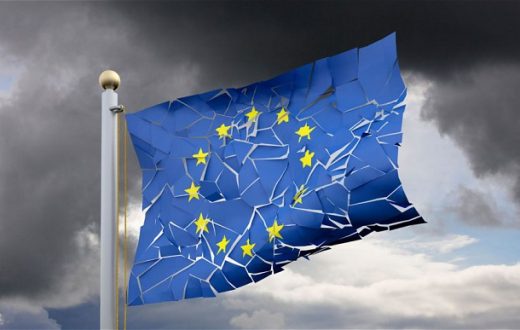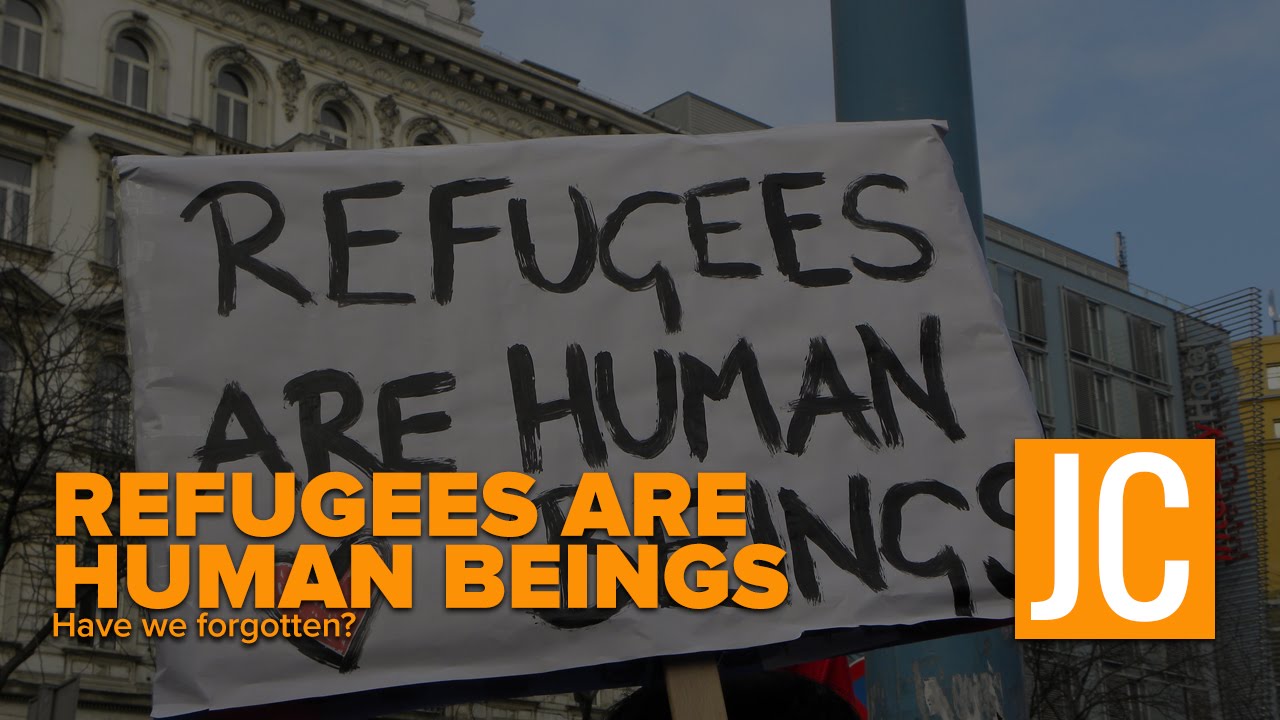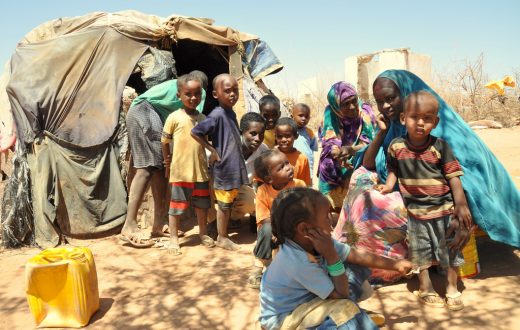The main theme for Europe in the fourth quarter will be a recurring one: fragmentation. Indeed, the next three months will bring political and even territorial fragmentation to the Continent. The European Union will be dealing with three main issues, the migration crisis and political developments in Spain and Greece.
Germany will be increasingly hemmed in by domestic factors. Pressure from conservative forces within her government will force Chancellor Angela Merkel to continually seek accommodation. This will be the case, for example, with the migration crisis. On the one hand, Germany will introduce reforms to make it easier for refugees to join the workforce. On the other hand, it will toughen its asylum policies to slow the flow of refugees to Germany
Conservative pressure will also be felt in Merkel’s handling of the Greek bailout. Berlin will give Greece’s new administration enough time to come up with a governing plan. However, Berlin will also push Athens to honor its bailout commitments and will be willing to delay the disbursement of money in the likely case the reforms calendar is not respected. Merkel’s position as chancellor is not under threat, but dissidents within her party will remain very vocal, forcing Merkel to seek the middle ground.
The Immigration Crisis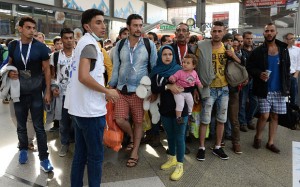
The arrival of asylum seekers will remain problematic for Europe during the quarter, but measures by EU members to enhance land and maritime controls and colder weather will temporarily reduce the influx of migrants into the Continent. During the quarter, Europe will focus its efforts on measures designed to prevent people from entering the Continent, especially by seeking to cooperate with countries in the Middle East and Africa.
However, European efforts to prevent migrants from reaching EU territory will have modest success. The European Union will provide more funds for countries in the Middle East and North Africa. This will only be modestly effective: In countries such as Libya, there is not a central government to negotiate with. The European Union’s naval operation in the Mediterranean Sea will start boarding, searching and seizing vessels in international waters. This will increase the chances of violent clashes between EU forces and human traffickers. In addition, money will not be enough to keep migrants in countries like Turkey or Lebanon, where asylum seekers find legal barriers to work.
Under pressure from conservative forces at home, Germany will toughen its position on asylum, trying to become less attractive for asylum seekers. Access to asylum benefits will be made harder while repatriations will be made easier for certain groups (especially migrants from the Western Balkans). Sporadic border controls will remain in place across the Continent aimed at disrupting migration routes.
The Greek Crisis
During the fourth quarter, the Greek government will introduce just enough measures to receive funds from its bailout program, but the entire schedule of reforms and disbursement of money will be delayed. Because of the general elections that were held in September, Athens postponed the approval of many of the reforms included in its bailout package. As a result, the creditors will probably delay their assessment of the bailout and the disbursements of money (both were originally scheduled for mid-October).
The creditors are likely to give Greek politicians some extra time to come up with a government program and a plan for reform. But several governments in Northern Europe, including Germany, the Netherlands and Finland, invested significant political capital in approving the Greek bailout and promised conservative lawmakers at home that they would keep constant pressure on Athens. This means that the lenders will have some patience with Greece, but pressure will return by the end of the year.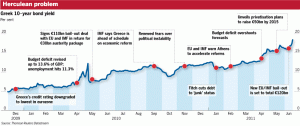
The delays in the reviews and disbursement of money will also delay the International Monetary Fund’s decision on whether to participate in the program. The Greek government will push for debt relief, but the creditors will not make any concrete moves. Talks on debt relief will start during the quarter but will probably not bear any fruit before the end of the year.
After making substantial debt payments to the European Central Bank in July and August, Greece faces a somewhat calmer calendar of debt maturities for the rest of the year. This means that Athens can probably survive a delay in the disbursement of bailout money. However, Greece is not out of the woods. The longer the implementation of the program is delayed, and the longer the disbursement of money is deferred, the greater the fear of a Grexit and the more political frictions within Germany are bound to escalate.
The Spanish Crisis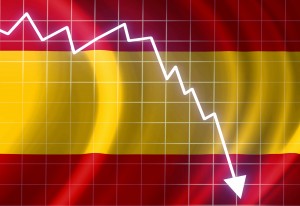
In Spain, the political effects of its economic crisis will be fully felt as secessionist sentiments continue to create problems between Madrid and Catalonia and as anti-establishment parties challenge the political establishment in the general elections.
In Catalonia, pro-independence forces will spend the first weeks of the quarter trying to form a government because the Together for Yes party, which won the election in September 27th , will need support from the small left-wing CUP party to appoint the next Catalan president.
Friction within the pro-independence parties will delay the secession process somewhat, and the next Catalan government will move cautiously: The Catalan parliament will probably approve a solemn declaration announcing the beginning of the independence process and will also announce plans to draft a constitution. However, political differences within the pro-independence camp will prevent Catalonia from making any drastic moves. The government in Madrid will turn to the Constitutional Court to block whatever measures it believes violate the Spanish Constitution.
At the national level, Spain will get ready for general elections on Dec. 20. After years of crisis, the two largest political parties (the People’s Party and the Spanish Socialist Workers’ Party) are discredited and will probably not be strong enough to form a government alone. This will lead to a coalition government, potentially including newcomer parties such as Podemos and Ciudadanos. Considering that Spain has little experience with coalition governments, 2016 will be a year of political fragility, as the decision-making process will become considerably more complex.
Italy and France Dodge EU Sanctions 
The final quarter of the year will be eventful for Italy. Prime Minister Matteo Renzi will push ahead with his agenda of economic and institutional reform while trying to prevent a rebellion within his party and seeking to circumvent the EU Commission. Renzi will make progress in the process of constitutional reform because the Italian Senate will approve a plan to modify the composition and powers of the Senate with the goal of creating more stable governments.
The reform, however, will not be completed during the quarter; approval by the lower chamber and a popular referendum will only happen in 2016. The government in Rome will also introduce tax cuts for households when it presents its budget for 2016.
In France, the Socialist government will continue to make timid moves toward reform in the labor sector. Paris will enter negotiations with unions and businessmen to simplify labor regulations in early 2016. Like Rome, the government in Paris will also introduce tax cuts for households and seek to slow the pace of deficit reduction in its budget for next year. We expect the EU Commission to criticize Italy and France, but formal sanctions are unlikely — another illustration of Brussels’ increasingly politicized role in moderating the Continent’s economic affairs.
France will be particularly active in the Middle East as Paris continues its air campaign against the Islamic State in Syria. The Elysee is worried about being sidelined in negotiations over the future of Syria and will try to position itself alongside the United States as a counterbalance to Russia’s presence in the country. Paris will also seek to mediate the political stalemate between rival political factions in Lebanon when French President Francoise Hollande visits the country late in the quarter, though Paris lacks the weight to meaningfully influence Lebanese politics.
Political Change in the East and the North
The fourth quarter will be very important for the two largest countries in Central and Eastern Europe: Poland and Romania. Poland will hold general elections in October that could result in the defeat of its business-friendly government. Should the nationalist opposition take over, it will try to reverse some of the policies implemented by the previous administration. It could, for example, announce higher taxes for the banking sector and lower the retirement age. Domestic political changes will not, however, substantially modify Poland’s Foreign Policy, which will continue to be based on EU and NATO membership and a tough stance on Russia.
Romania will also face political turmoil during the quarter. Prime Minister Victor Ponta will be under pressure from the opposition to resign, and he will struggle to find support from his own party. But as with Poland, political frictions in Romania will not affect the country’s foreign policy priorities, which involve keeping close ties with the United States and NATO. While political developments may prevent Poland and Romania from making any substantial progress in their bilateral relationship, Warsaw and Bucharest will remain interested in developing closer bilateral ties.
The fourth quarter will also feature the growing debate in Sweden and Finland over the issue of NATO membership. The threat of Russian aggression has prompted leaders in both countries to consider joining the military alliance, with which they already have close ties. While public opinion in Sweden is slowly starting to favor NATO accession, Stockholm will not act without Helsinki on board. Considering that the Finnish government is currently focus on the on-going economic crisis. Helsinki will be willing to discuss NATO membership but not to make any concrete moves during the quarter.
Climate Change Commitments 
During the fourth quarter, more than 190 countries will send delegates to Paris for the 2015 United Nations Climate Change Conference in hopes of signing a legally binding deal on environmental standards and emissions targets designed to combat the effects of climate change. Although this will likely be the biggest global climate change deal since the 1997 Kyoto Protocol, it will still remain weak on enforcement, and developing countries will try to make sure emissions targets do not hinder economic development.
The United States and especially the European Union have opted for more aggressive measures targeting climate change. The European Union has outlined a target to cut greenhouse gas emissions by 40 percent from 1990 levels by 2030. The United States has set out a target of 26 percent to 28 percent by 2030 from 2005 levels. Most developing countries have chosen to establish targets on emissions intensity — emissions levels per unit of GDP — instead of targeting overall emission levels. The 2015 Paris summit will lead to some sort of an agreement in December, but it is still an open question whether it will obtain enough votes, particularly from the United States and China, for ratification to be legally binding, as Paris and Brussels hope.


